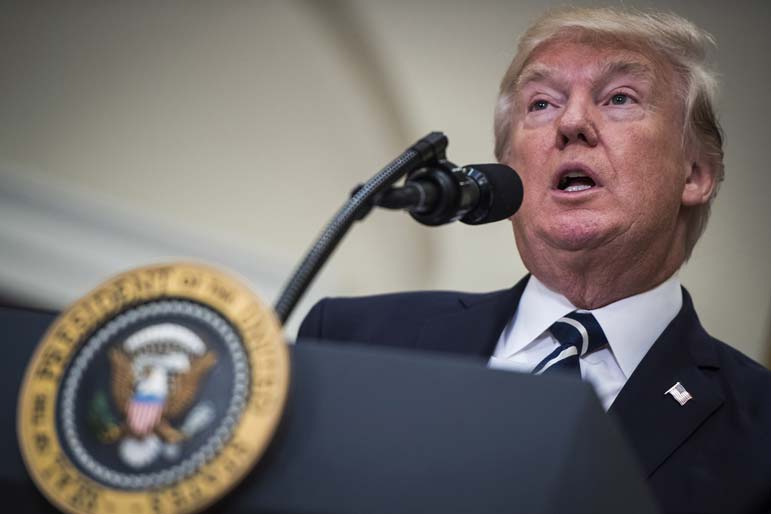 Jabin Botsford for The Washington Post
Jabin Botsford for The Washington Post
Trump is both too populist and not populist enough. His populism is largely, although not entirely, a matter of style — combative, lacerating, emotive, unpredictable and grandiose.
This sensibility is a central part of Trump's appeal. It also puts the accent on his personality, which is a double-edged sword, at best.
For every Trump voter that it lights up, it reminds a suburban woman why she hates his guts. The Democratic wave in the suburbs was mostly a function of a deeply felt personal revulsion toward the president.
If Trump's populism is always based foremost on Rally Trump and Twitter Trump, i.e., on the behavior pushing the suburbs away from him, there is no way for him to try to tamp down the yawning geographic and demographic vulnerability underlined by the midterms.
Trump is different from other Republicans on trade and immigration, the issues at the core of his populism, but other than that, he has governed as a fairly typical Republican. His biggest legislative accomplishment during the first two years of his presidency was a tax cut out of Republican Central Casting. But the tax cut proved an electoral nullity, in large part because it was an answer to a question that voters weren't asking.
Trump knew that it didn't resonate. He showed an instinctual sense that he needed a genuine middle-class agenda. He talked of a fantastical middle-class tax cut about to be considered. And he insisted that Republicans would do a better job dealing with the problem of pre-existing conditions than Democrats, without offering any supporting policy.
In the absence of any populist substance, Trump was thrown back on the caravan, and more caravan, and his usual mediagenic provocations. This created his characteristic stew of acrimony and hysterical overreaction by his opponents, which pushed both his supporters and opponents to the polls, and — with the exception of some key red-state Senate races — more of the latter than the former.
Trump's personality is never going to change, nor is he going to become the candidate of the suburbs, but small changes can make a difference. Going into 2020, he needs a populism that is a little less stylistic and more substantive, and one that has crossover appeal to Trump's working-class voters and suburbanites.
It's especially important to have a counter to the Democratic House, which will presumably be passing an exemplary progressive agenda on health care, college and wages in the runup to the 2020 election.
One focus should be work. Oren Cass of the Manhattan Institute has written a new book, "The Once and Future Worker," that is a guide to new conservative thinking on how to support a healthy labor market. The Trump team should crib from it freely. A central idea in the book is a wage subsidy for low-wage work.
Another broad category should be the cost of living, especially health care and college. Although you wouldn't know it from the midterm campaign, conservatives do have proposals to deal with pre-existing conditions. The thrust of the GOP health care agenda is to reduce costs to consumers, a theme Trump should emphasize.
It should be natural to take on the costs of higher education, driven in part by the unintended consequences of federal programs, and promote alternative means of training and accreditation besides four-year college. The higher-education establishment is obviously politically uncongenial to Republicans, and Trump, of all politicians, should want to promote the interests of young people entering the workforce without a four-year degree.
As for Trump's signature issue of immigration, it would go down easier in the suburbs if he began talking about E-Verify, which puts the focus on the employers rather than the immigrants themselves.
The problem is these are relatively small-bore ideas that don't lend themselves to Trump's rhetoric of large claims and easy-to-understand villains. Taken together, it can be an agenda larger than its parts, but it will need to be thought through and can't just be grabbed off the shelf.
Even if last week's results weren't as encouraging to Trump as they appeared at first blush, he is still very much in the game. But unless some exogenous event boosts Trump's standing, he's dependent on Democrats once again nominating a candidate unacceptable to the white working class (and not particularly popular in the suburbs, either).
Even then, it could be a near-run thing. Best to deepen and widen his populism in advance of what could be another effort to thread the electoral needle.
(COMMENT, BELOW)


 Contact The Editor
Contact The Editor
 Articles By This Author
Articles By This Author